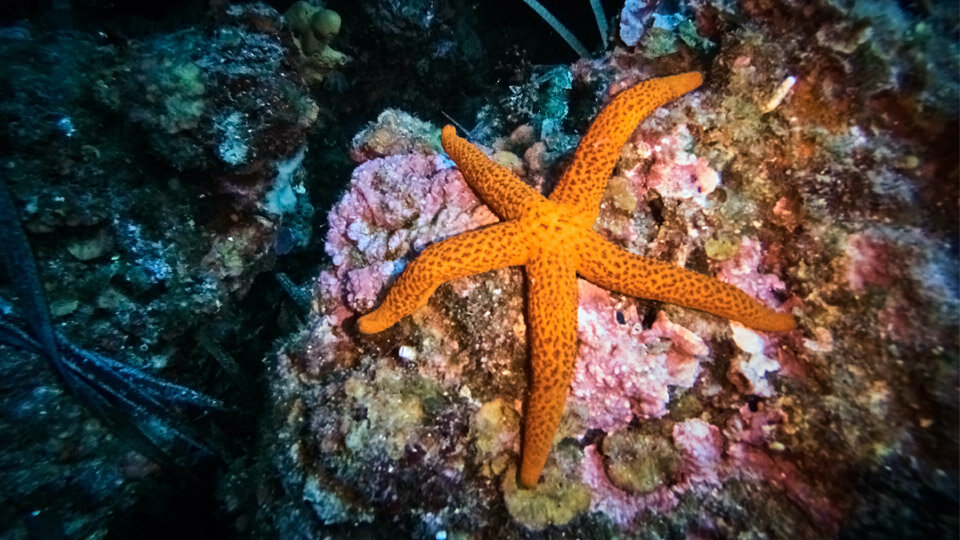Returning starfish to the ocean
Most of us have heard of the starfish story. An old man is walking along the beach and sees a boy throwing starfish on the sand back into the ocean, one at a time, to save them. The man tells the boy that because there are hundreds of starfish on miles of beach the boy’s actions can’t possibly make difference.
The boy then picks up another starfish and tosses it into the ocean and tells the man, “I made a difference for that one.”
The traditional meaning of this parable is that everyone can make a difference, even if just for one life.
Recently, after a 20-year career of building teams, systems, services and advocacy programs for young survivors of abuse, neglect and exploitation, I took an extended break. It was a meaningful time for me to reflect on – and express gratitude for – my career and life so far and to ponder the future.
During that time, I bought a one-of-a-kind starfish necklace which reminded me of the starfish parable and its meaning to me. I wear this necklace every day.
To make a difference, you need to understand the ecosystem
Now that I have transitioned to a new career focused on comprehensive policy solutions and investments in family and community strengthening at Buckner International, this starfish I see in the mirror each day has got me thinking. And it’s got me re-thinking about the parable and my role in serving vulnerable children and youth.
I did a little research into starfish. Turns out rescuing them is not as simple as it seems. Truly making a difference means going deeper, learning more about the starfish and their entire ecosystem, and our well-meaning but potentially harmful effects on them.
Starfish are not fish at all. They are echinoderms, like sea urchins and sea cucumbers, and the proper name for them is sea stars. There are over 2,000 species of sea stars that live in various parts of the ocean, from tide pools to deep sea and sands under water. Some have as many as 50 limbs. They have evolved over hundreds of millions of years into very sophisticated, delicate animals with up to 15,000 minuscule tubes on each limb that help them walk.
Sea stars are also extremely important to the ecosystem, keeping the other sea animal populations in check and therefore, improving the health of kelp forests that numerous sea creatures rely upon for food and that reduce carbon in the atmosphere for all of us.
Recently, sea stars are on the decline, some species approaching extinction, and scientists aren’t sure why.
It is believed that sea stars wash up on shore when they get caught in strong currents caused by ever-strengthening storms or when humans dredge for mussels or other species. There are differing opinions on whether throwing them back into the ocean truly helps sea stars in the short or long run. Human touch can injure their delicate frame and the bacteria, oils and chemicals like sunscreen on our skin can kill them.
To make a difference, you must be willing to keep learning
Regardless of this uncertainty, the starfish parable remains a useful analogy to teach the power of one. But real-world problems like species extinction or child abuse, neglect and exploitation are complicated and finding and preventing their causes require we collaborate and be willing to learn more to find the truth.
We absolutely must seek to protect and recover the vulnerable we find along the beach. But we must also engage in the hard work of examining our ecosystems that make the vulnerable so vulnerable.
The solution is not as simple as separating children from abusive families and recruiting more foster or adoptive homes. It must also include keeping them healthy and strengthening their natural habitats – the families and communities children live in.
To make a difference, you must be collaborative, sustainable and transformational
With Buckner’s incredible legacy of serving vulnerable children for more than 143 years, first as an orphanage and then through foster care and adoption, this work of strengthening ecosystems is the work Buckner is focusing its future on.
While still providing foster and adoptive homes to those children who need them, we are increasingly focusing on family preservation and empowerment. The Buckner Family Hope Center™, Buckner Family Pathways™, and Prevention and Early Intervention programs are reducing abuse and neglect and transforming generations in Texas and around the world.
During this National Child Abuse Prevention and Awareness Month, I am grateful for those who are trying to help the individual sea stars back into the ocean, and I am also grateful to be part of an organization that is willing to go deeper as well, toward collaborative, sustainable and transformational improvements for our families and communities.
Written by Andrea Sparks, director of government relations for Buckner International. She previously served as the founding director of the Texas Governor’s Child Sex Trafficking Team, the executive director of the National Center for Missing & Exploited Children’s Texas Regional Office, and the director of public affairs for Texas CASA (Court Appointed Special Advocates).




Add a Comment